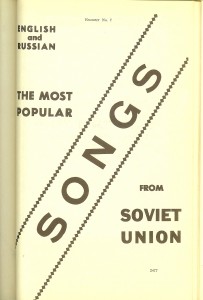In today’s Financial Times, Edward Luce points out that the US – creator of the internet – has dropped from top in the late 1990s to 16th now in the OECD league for average internet speeds, and has some of the highest prices too. He notes that South Koreans speak of trips to the US as ‘internet holidays’, so unfavourably does the experience compare with online access back home. Given the rise of Samsung – which spends more than twice as much proportionately on R&D as Apple (5.7% vs 2.2% of revenues respectively) – it can only be a matter of time before online leadership migrates decisively to Asia.
The article is clear about the problem – the Comcast monopoly, and the donations the company makes to Barack Obama, along with its enormous lobbying effort. Comcast’s senior VP David Cohen is apparently one of the US President’s biggest fundraisers. Comcast spent more than $14m on lobbying in 2011, making it the ninth biggest spender in the US.
This only confirms the argument of Susan Crawford’s book [amazon_link id=”0300153139″ target=”_blank” ]Captive Audience: The Telecom Industry and Monopoly Power in the New Gilded Age[/amazon_link], which directly compares Comcast to the giant trusts of the late 19th century, broken finally by the struggle to implement the 1890 Sherman Anti-Trust Act. I have to say the book isn’t the most exciting read in the world – not as enthralling as Tim Wu’s [amazon_link id=”1848879865″ target=”_blank” ]The Master Switch[/amazon_link] – but nevertheless it does a superb job of depicting Comcast’s strategy. It emerges as a superbly well-run business in strategic terms – although not, it seems, for customer service.
The company has been particularly astute about its engagement with Congress and regulators, and in judging the technological trajectory of the industry. However, the book also explains why and how the FCC made the decisions that now look mistaken, and is therefore a rare instance of insight into the complexities and compromises of the official and political world. This is much more useful than playing the blame game. So though there may be more US-centric detail than the general reader wants, this is an essential book for anyone interested in communications markets and digital convergence. I have to admit I’d heard of Comcast, but not at all of its controlling and founding family, the Roberts pere et fils, the unknown “robber barons” of the new gilded age.
[amazon_image id=”0300153139″ link=”true” target=”_blank” size=”medium” ]Captive Audience: The Telecom Industry and Monopoly Power in the New Gilded Age[/amazon_image]
Apparently Susan Crawford is a candidate for the post of next head of the FCC, but the book attacking the Comcast monopoly is seen to have damaged her chances. On the other hand, President Obama doesn’t need re-electing, so maybe he will be brave and nominate a candidate with the interests of American consumers at heart – I was staggered to read in Crawford’s book that the average user pays $143 a month for their high-speed internet and cable bundles.
For here is another example of the way big business has bought political power, and therefore the freedom to make still more money and buy still more power, in America. That subversion of social welfare in the interests of the rich affects the rest of the west too, not to mention cementing the future economic and geo-political strength of Asia.


